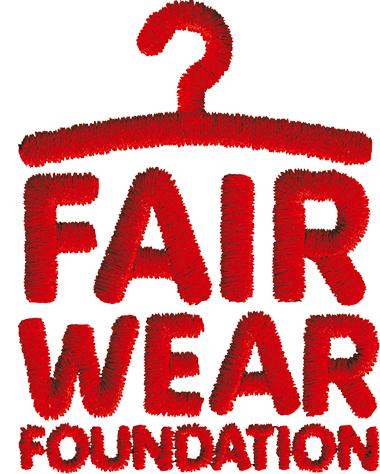Violence and harassment —especially against women—in the world of work is a prevalent and persistent issue, deeply rooted in unequal structural norms and practices. It is a global issue that affects all occupations and sectors. It is particularly widespread in the garment industry, which employs a high number of women, often in lower- paid, lower-power positions.
ILO definition of violence in the service sector: ‘Any action, incident or behaviour that departs from reasonable conduct in which a person is assaulted, threatened, harmed, or injured in the course of, or as a direct result of, his or her work’
FWF have developed a guide that outlines clear actions brands can take to tackle gender-based violence, and help the ratification of the global ILO Convention on Violence and Harassment in the World of Work.
Download
In response to the pervasive discrimination and harassment against women in garment factories, FWF’s local Indian staff teamed up with Indian civil society organisations SAVE and CIVIDEP in 2014 to create a special training programme for supervisors in the garment-producing regions of Bengaluru and Tirupur. A more extensive programme previously developed by local stakeholders, including CIVIDEP, formed the basis for this programme.
Download
Fair Wear Foundation, together with other MSIs and business associations, wrote a joint letter to Prime Minister Sheikh Hasina of Bangladesh.
In the letter, the organisations urged the government of Bangladesh to show leadership to find solutions to the current challenges, to continue the ACCORD’s contributions to the development of the garment sector in Bangladesh, and to assist in the eventual role of the RCC in taking over the leadership of this work.
The organisations acknowledge the significant and substantive achievements that have been made on worker safety, such as the creation of an independent Remediation Coordination Cell (RCC) within the Department of Inspection for Factories and Establishments (DIFE) to regulate safety in the RMG sector.
However, there is still more to be done to complete remediation at factories covered by the ACCORD. Less than half of all ACCORD-covered factories have completed the installation of adequate fire detection systems and less than 60% have completed structural retrofitting. Moreover, factories not covered by the ACCORD will place an extra additional burden on the work of the RCC that could jeopardise its success. The signatories of the letter believe that more work is needed in order to absorb the work of the ACCORD into the RCC. It is in the best interests of all parties, including the Government and RMG industry, that the RCC be provided with further opportunities and time to develop successfully.
The signatories respectfully note that there is a clear benefit for everyone. There is an advantage in Bangladesh, the global RMG industry, and with workers in local factories to continue and deepen this successful partnership that has delivered such fundamental and substantive positive change. Yet there is a fear that the safety of Bangladesh RMG workers could be compromised if an effective structure is not in place for an effective handover of responsibility.
On 12 September 2018, FWF and FNV partner organisations joined together in Bangladesh to submit a draft law on the Prevention of Sexual Harassment at Workplace to the Honorable Minister of Law, Justice and Parliamentary Affairs, Mr Anisul Haque and to the Honorable Minister of Labor and Employment, Mr. Md. Mujibul Haque, for their approval.
This draft law was created in response to a ground-breaking 2009 Supreme Court decision requiring the prevention of sexual harassment in the worplace. Based on the court’s decision, FWF’s Workplace Education Program has been providing training to factories to effectively address and prevent gender-based violence, which includes the establishment and strengthening of internal workplace harassment committees.
The draft was developed through the efforts of the Gender Platform, which involves seven partner-organisations of FNV and FWF—Awaj Foundation, OSHE, Karmojibi Nari, BILS, BLF, BNWLA and IndustriAll/IBC and in consultation with a broadrange of stakeholders.
The prevention of gender-based violence is a key focus of Fair Wear Foundation in Bangladesh and one of the priority areas under the Strategic Partnership, implemented together with Dutch trade unions CNV and FNV.
Fair Wear Foundation organised a study visit for stakeholders from Myanmar to engage with representatives in India on ways to address violence and harassment in the workplace. The goal of the trip was to introduce relevant stakeholders from Myanmar on India’s legislative framework and its application in garment factories.
In 2013 India passed legislation to prevent and address the sexual harassment of women in the workplace. Legislation includes practical measures like the obligation to deliver training on sexual harassment and the requirement that companies with more than 10 employees—including garment factories—establish an Internal Complaints Committee.
The visitors attended several insightful meetings with FWF partner organisations SAVE and Cividep, trade unions, and government officials. They took time to visit a factory where the FWF Workplace Education Programme (WEP) has been implemented. At the factory, the group gained a deeper understanding of harassment and how the Internal Complaints Committee can help protect the rights of garment workers.
Harassment-free workplaces
Participants included representatives of Parliament, International Labour Organization (ILO), Confederation of Trade Unions in Myanmar, Myanmar Garment Manufacturers Association (MGMA), Gender Equality Network, Labour Rights Defender and Promoter (LRDP) and CARE Myanmar.
This trip represented one of the first times that representatives from government, the private sector, unions and NGOs gathered together to engage seriously on the issue of gender-based violence. It resulted in a strong commitment to work together to develop policies which will contribute towards harassment-free workplaces.
Final report of a complaint in Romania where Bierbaum-Proenen, Living Crafts and hessnatur have production – November 2016
According to the complainant, production targets lead to work stress. Also, workers were requested to work on Saturdays, but only asked one week beforehand. Moreover, their pay slips did not clearly state their records regarding overtime, leave and bonus, which made it difficult to calculate real wages. This is made worse since human resources is actually outsourced so workers cannot inquire about their payment very easily.
The audit conducted by a FWF team concluded that workers perform overtime hours on Saturdays within legal limits. The audit confirms that workers were asked one week before if they could perform overtime hours on Saturdays. The overtime hours and productivity bonuses of workers are posted in the factory. Wage records do represent overtime hours, annual leaves and bonuses. Salary calculations and administration of attendance lists, pay slips and so on is done internally.
FWF recommends all FWF Members sourcing in the factory, to investigate how the production planning set by the German mother company has an impact on the production pressure in the factory. With regard to stress at work, the current situation should be further assessed, root causes analysed and improvements agreed upon. This may include a procedure for involving the workers in setting realistic production targets.
The complainant decided to resign. The termination of the individual employment contract of the complainant with the factory was confirmed by the involved parties.
Download
Intermediate report of a complaint at a factory in Romania where ODLO has production – October 2017
In February 2017, a former employee at the factory stated that the situation did not support good working conditions and could even violate labour rights. Specifically, turnover was high experienced employees were given extra workload without extra time allocation or a wage increase. Further, there was cronyism instead of hiring qualified personnel. Workers were also discouraged from registering for medical leave. Finally, it was alleged that verbal abuse occurred on a daily basis.
An on-site investigation was carried out by ODLO in May. The investigation found that the workload of experienced workers had continued to increase since 2014, without overtime payment or compensation. A new CBA was negotiated with more restrictive rules. According to the factory management the lack of qualified personnel that drives hiring choices; from the investigation it appears that there was no consultation with worker representation when there was a restructuring of the company. Practices of cronyism were not found. Regarding medical leave, the main issue found was the structuring of rest leave during low season periods, and without consultation with worker representatives; this led to workers using medical leave in lieu of rest. Finally, workers confirmed instances of verbal abuse, and threats of losing their jobs. It became clear that internal communication channels are not working, and that standards for safe working conditions are not met.
FWF recommends Odlo to create an overview of the findings and discuss measures with factory management to improve the situation. A verification audit will be planned in 2018 to verify the complaint.
Download
Final report of a complaint at a factory in China supplying Suit Supply – August 2017
On 29 August 2017, a complainant called FWF claiming that the factory had shortened the lunch break from one hour to a maximum of 30 minutes, because of changes to the boiler system led to increased energy costs.
FWF contacted Suit Supply who, in turn, contacted the factory. Factory management had already seen that this change affected workers too much, so they had already changed the lunch period back to one hour.
Download
Complaint at a factory in Tunisia where FWF member KOI has production March 2017 – Initial Report
On 12 March 2017, a worker complained that the working conditions at a factory different than their own workplace were very unfavourable, with health and safety issues, high worker turnover, and the lack of long-term contracts.
The case is under investigation.
Download
Initial report of a complaint at a factory in Morocco supplying Greiff
On March 26, 2017, FWF received a complaint from a worker currently employed at the factory. In October 2016 an FWF audit took place at a Moroccan supplier of Greiff. The report showed issues concerning payment of wages, social security and documentation. Greiff and the supplier had worked on remediation of these issues. On March 26, 2017, a worker contacted FWF with a complaint that contained similar issues. According to the complainant, the company stopped the payment of social security contributions to social security, actual working hours and work recorded on the pay-slip do not correspond. In addition, the time for breastfeeding is still not paid by the company, and the workers claim that there is a problem with the calculation of the income tax. Finally, workers are fined by deducting 3 working days of their salary for anyone who chews gum, speaks while working or speaks on the telephone (even when they contact family in the case of overtime).
FWF decided that the case is admissible on March 28, 2017, and informed Greiff. Greiff contacted the supplier and asked for a reply. Factory management confirmed several issues, like giving penalties to workers and the fact that workers are not free to go to the toilet. At the same time, factory management denied illegal practices concerning wages and social security. On May, 3 2017 an on-site investigation took place by the FWF local complaints handler and a documents inspector.
During the day of the investigation, management confirmed all issues raised by the complainants, which was also confirmed by worker interviews and documentation. In addition,two trainees were working on the day of the investigation. They did not earn the legal minimum wage as required by law. Also, factory management had changed the phone number of the FWF complaints handler on the FWF Code of Labour Practices posted in the factory. Following the investigation, factory management informed the FWF complaints handlers that they are setting up a production schedule with all their customers. Furthermore, they will look into the costs and set up a system of standard minutes per piece. Management will stop working hours of more than 191 hours per month. FWF submitted a list of suggestions for remediation. The case is still under remediation.
Download







